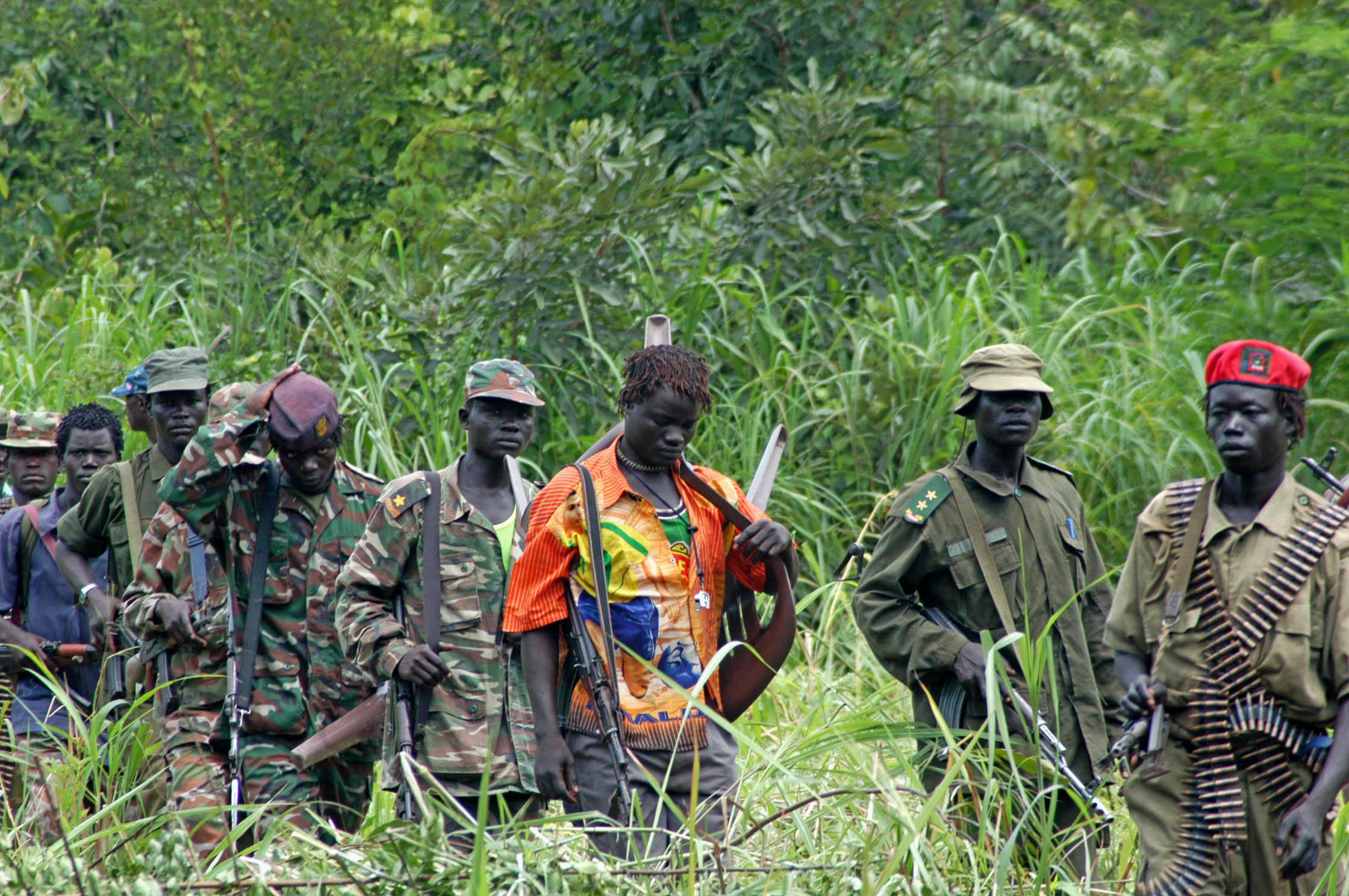
Nelson Ochaya, a former LRA child soldier, shares his story of abduction and escape, and how his experience inspired him to work toward educating and reintegrating other former child soldiers.
Nelson lived in a village near Gulu, the main town of northern Uganda. He was twelve years old at the time of his abduction by the LRA. He had heard the LRA was in his village, so he ran away and hid with his father. When they were on their way home, they ran into the rebels. He and his father were tied up. But he knew that if he admitted that he was with his father, he would be forced to kill him so he wouldn’t run away and return to his village. So he denied that his father was beside him.
They took Nelson away and told him that he must be caned so that “civilian behaviors” would be beaten out of him. The rebels brought heaps of sticks and he lay down on the ground. Five rebels caned him ferociously; his hand was so swollen that if he pressed it, it would crack. If he survived they said it meant he was very strong.
Nelson was anointed with oil to show he was now part of the LRA. He recovered from his caning and began his military training in southern Sudan. He was trained to use a gun, lay an ambush, and loot for food. Nelson was taken to a Sudanese government barracks in Juba to receive artillery training. He trained for six months and was given the rank of sergeant. He was then ordered to attack an outpost of southern Sudanese rebel soldiers and cut a male organ to prove his talent. He succeeded and this got the attention of the rebel high command. Nelson was then sent to Uganda to abduct a group of girls from a boarding school.
Nelson finally escaped from the LRA after a battle. He was too traumatized to be taken to his father, who was still alive. But a generous Frenchman provided counseling for him and helped him get treatment for a gun wound he had sustained. Nelson’s parents were very poor and could not afford an education for him. He stayed at a World Vision rehabilitation compound for nine months, and he was still wearing army combat uniforms.
One day he went to see where his mom lived, and he told her that he wanted to go to school. But he still had “rebel hair” (dreadlocks) that distinguished him from the other students. Most of the students kept away from him when he started attending the local school. The teacher at the school was so scared that she couldn’t teach— she kept repeating herself— and everyone in the classroom was looking at him, so he left the school.
After these experiences, Nelson wanted to do something to change perceptions and to support his fellow abductees. He joined with a few other former child soldiers to create the War Affected Children’s Association (WACA) to help his friends who were in captivity like him. WACA provides former child soldiers with formal and vocational education to help them reintegrate back into their home communities in northern Uganda. He hopes to help other people and his colleagues who are still there in the bush. He wants to be a good example to them.
Nelson is happy working with WACA, although he is “still traumatized” by what he experienced in the LRA. He is gradually feeling better about himself and working with WACA has helped. He is helping other former child soldiers, and he wants to be a good mentor and example to them, to assist in any way that he can. He hopes that life will get better in northern Uganda, and he wants to do what he can to help his fellow former child soldiers so that a better life can be possible for all of them.
This profile and many others were compiled for The Enough Moment, a book by John Prendergast and Don Cheadle about engaged citizens – known and unknown, in the U.S. and abroad – who are mobilizing to help end genocide, rape, and the use of child soldiers in Africa. Visit the Enough Moment Wall to hear people describe their “Enough moment” and to upload a video, photo, or written testimonial of your own.
Photo: LRA rebels (AP)

